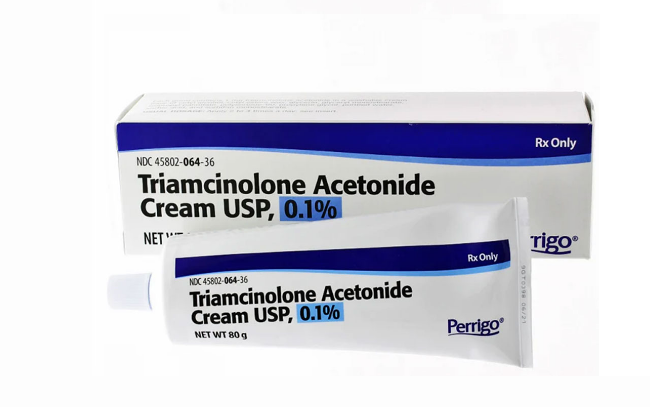Triamcinolone Acetonide Cream: Uses, Effects & Comparisons

Triamcinolone Acetonide Cream is a topical medication that has gained significant attention in the medical community for its versatile applications. But what exactly is it, and how does it differ from other similar creams? In this article, we’ll delve into its uses, side effects, and address some common questions surrounding this cream.
Also Read:- Understanding FUPA: Causes, Symptoms, and Effective Treatments
1. Introduction to Triamcinolone Acetonide Cream
Triamcinolone Acetonide Cream is a corticosteroid, which means it’s a type of steroid. It’s designed to reduce inflammation, redness, and swelling on the skin. This cream is often prescribed by dermatologists and general practitioners for a variety of skin conditions.
2. Common Uses of Triamcinolone Acetonide Cream
So, what is triamcinolone acetonide cream commonly used for?
- Eczema: This skin condition causes itchy, red, and dry skin. The cream can help reduce these symptoms.
- Psoriasis: Characterized by thick, scaly patches on the skin, triamcinolone acetonide cream can help alleviate the inflammation associated with psoriasis.
- Allergic reactions: Skin reactions caused by poison ivy, insect bites, or other allergens can be treated with this cream.
- Dermatitis: Whether it’s contact, seborrheic, or atopic dermatitis, the cream can help reduce inflammation and itchiness.
3. Side Effects of Triamcinolone Acetonide Cream
Like all medications, triamcinolone acetonide cream comes with its set of side effects. Some of the common ones include:
- Burning or itching at the application site: This is usually mild and goes away after a few days.
- Dry or cracking skin: Overuse can lead to skin thinning or discoloration.
- Acne: Some users may experience breakouts after using the cream.
- Stretch marks: Prolonged use can lead to the development of stretch marks, especially in skin fold areas.
It’s essential to consult with a healthcare professional if any of these side effects persist or become bothersome.
4. Precautions: Where Should Triamcinolone Cream Not Be Used?
Where should triamcinolone cream not be used? It’s a crucial question. Here are some areas and conditions where the cream should be avoided:
- Open wounds or cuts: Applying the cream to broken skin can lead to faster absorption into the bloodstream, increasing the risk of side effects.
- Eyes, nose, or mouth: Avoid contact with these areas. If the cream does get into any of these areas, rinse with water immediately.
- Genital or rectal areas: Unless prescribed by a doctor, avoid using the cream in these sensitive areas.
5. Is Triamcinolone a Steroid or Antifungal?
A common misconception is whether triamcinolone is an antifungal. To clarify, triamcinolone is a steroid. It’s designed to reduce inflammation and is not effective against fungal infections. If you suspect a fungal infection, it’s essential to consult with a healthcare professional for the appropriate treatment.
6. Triamcinolone vs. Hydrocortisone: Are They the Same?
Is triamcinolone the same as hydrocortisone? While both are corticosteroids and have similar uses, they are not the same. Hydrocortisone is a mild corticosteroid and is available over the counter in lower strengths. In contrast, triamcinolone is a medium to strong potency steroid and is often available by prescription. The choice between the two often depends on the severity of the skin condition.
7. Conclusion
Triamcinolone Acetonide Cream is a potent and effective treatment for various skin conditions. However, like all medications, it’s essential to use it correctly and be aware of its side effects. Always consult with a healthcare professional before starting or stopping any medication. With the right guidance, triamcinolone acetonide cream can be a valuable tool in managing skin health.
FAQs on Triamcinolone Acetonide Cream
Q1: What is triamcinolone acetonide cream commonly used for?
A1: It’s used to treat skin conditions like eczema, psoriasis, allergic reactions, and dermatitis.
Q2: Where should triamcinolone cream not be used?
A2: Avoid using on open wounds, eyes, nose, mouth, and genital or rectal areas unless prescribed.
Q3: Is triamcinolone a steroid or antifungal?
A3: Triamcinolone is a steroid, not an antifungal.
Q4: Is triamcinolone the same as hydrocortisone?
A4: No, while both are corticosteroids, triamcinolone is typically stronger and often prescription-based, whereas hydrocortisone is milder and available over the counter.








